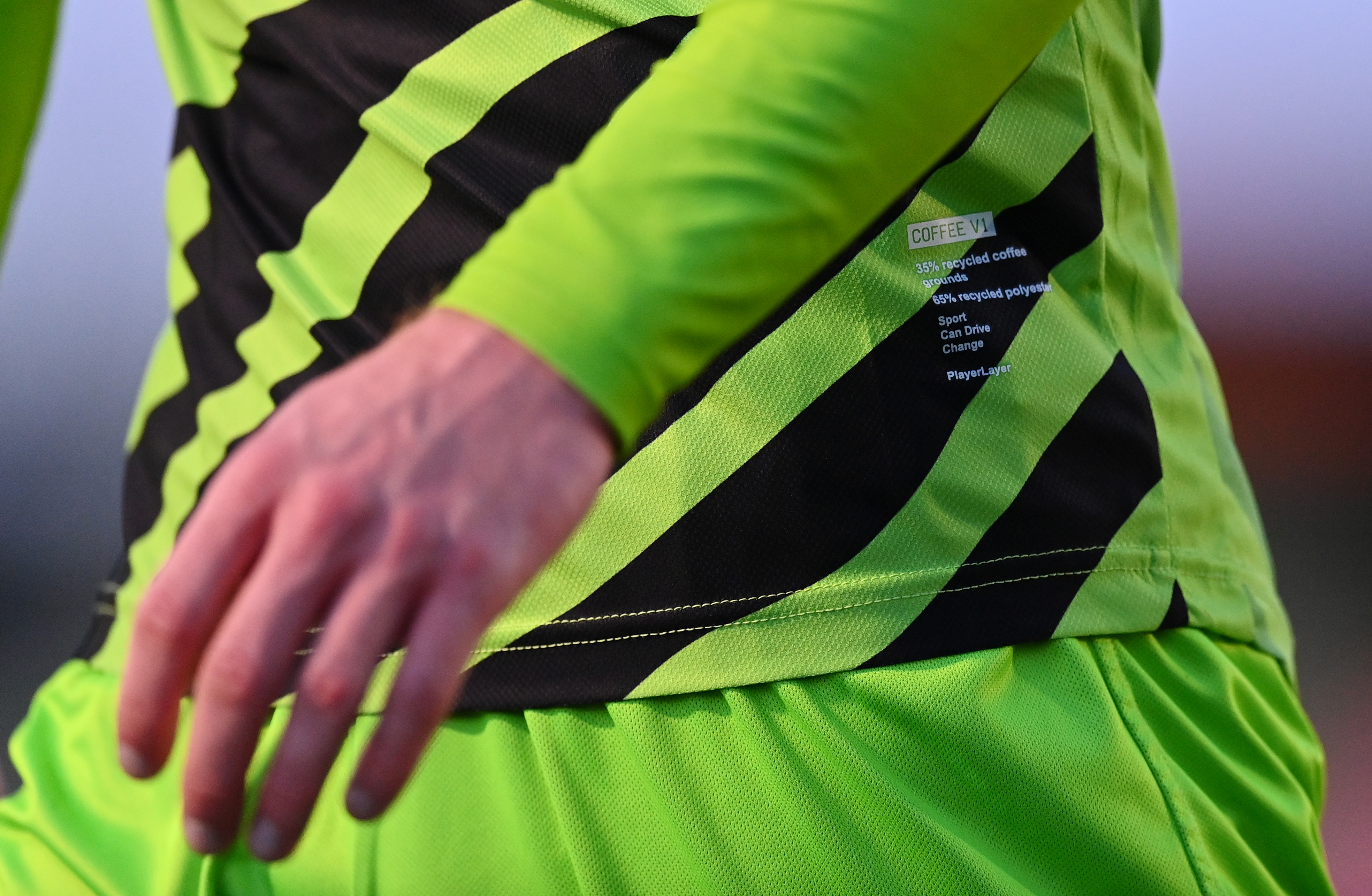Football club takes a stand against climate change
For the ‘greenest’ football club in the world, nomen est omen. Playing in League Two, the Forest Green Rovers from Nailsworth – a town in the south west of England with a population of 6,000 – was recently named the ‘worlds’ greenest football club’ by FIFA. The United Nations had already declared the Green Rovers climate neutral back in 2018. The reason is the club’s high level of commitment to climate protection and sustainability.
Now, however, the provincial club has set a whole new standard in terms of its players’ gear: Instead of its previous bamboo jerseys, the team now sports state-of-the-art kit made from leftover coffee grounds and recycled plastic. According to the club, the new prototype, which is of course still in the same club’s ‘healthy’ lime green, is supposed to be much more breathable and durable than the previous bamboo material – and is a real eye-catcher as well.
Veggie burgers fly off the griddle
For Green Rovers fans, this additional sustainable and environmentally friendly step should come as no surprise. Animal products have not been sold in the Green Devils’ stadium for some time now. Instead, fans can buy vegan pasties, vegan cakes made by Quorn, veggie burgers, and plenty of organic beer served in compostable cups. But because football fans – particularly in the birthplace of the sport – associate the game with tradition and are not keen on what they consider to be passing fads, the club allows fans to bring their own food if they don’t like the vegan food on offer. But few people make use of this option any more. On the contrary: The fans now rave about the new ‘menu’ and snack bar sales are up 400%.
As if that weren't enough commitment to their ecological footprint, the Rovers also use seaweed rather than pesticides to care for their pitch, which is cut by a solar-powered ‘mow-bot’ and irrigated by a rainwater sprinkler system. Furthermore, the club’s entire electricity supply comes from green power, with just under a quarter generated by solar panels on the stadium roof. And in keeping with the philosophy, all administrative employees, ground staff and players are encouraged – when on duty at least – to eat vegan food and drive electric vehicles. And there are certainly sufficient charging stations on the Green Devils’ club premises. For vehicles for which no electric alternative is yet available, there is a pump with biofuel – made, of course, from frying fat recycled from the stadium canteen.
And in future, the team will travel to away games on an electric bus. Because that is not currently possible, the club offsets emissions incurred by bus trips by contributing to the UN Climate Fund.
New timber stadium in the planning stage
But all this is still not enough for the club’s visionary chairman and owner Dane Vince. He has commissioned the planning of a new stadium for his Green Devils. The goal – pun intended – is to build ‘Eco Park’, the world’s first all-timber football arena. The club’s new home – with a capacity of 5,000 seats – is scheduled for completion in around four years. The league has already granted approval for the project. “We’ll have the lowest carbon footprint of any stadium in the world since the Romans invented concrete,” Vince is quoted as saying in the official club news release. The 59-year-old is also confident that the Forest Green Rovers will send a clear signal in the fight against climate change: “Sports fans are passionate. We want to harness this passion and guide it towards environmental awareness. The fans could change the world with their commitment.”
The multi-millionaire saved Rovers from bankruptcy in 2010 and turned the club around. The Briton, who made his fortune with the wind energy company Ecotricity, gave the club new colors and a new green image. After the club was founded in 1889, it hovered around the bottom end of English amateur football. In 2017, the club qualified for promotion to the League Two, the fourth level of the English league, for the first time – and thus made the transition to a professional football club. But the success story is evidently not over yet: Thanks to great performances this season, the Green Rovers are on the verge of promotion to League One (the third level). So sustainability certainly leads to success, it seems.

